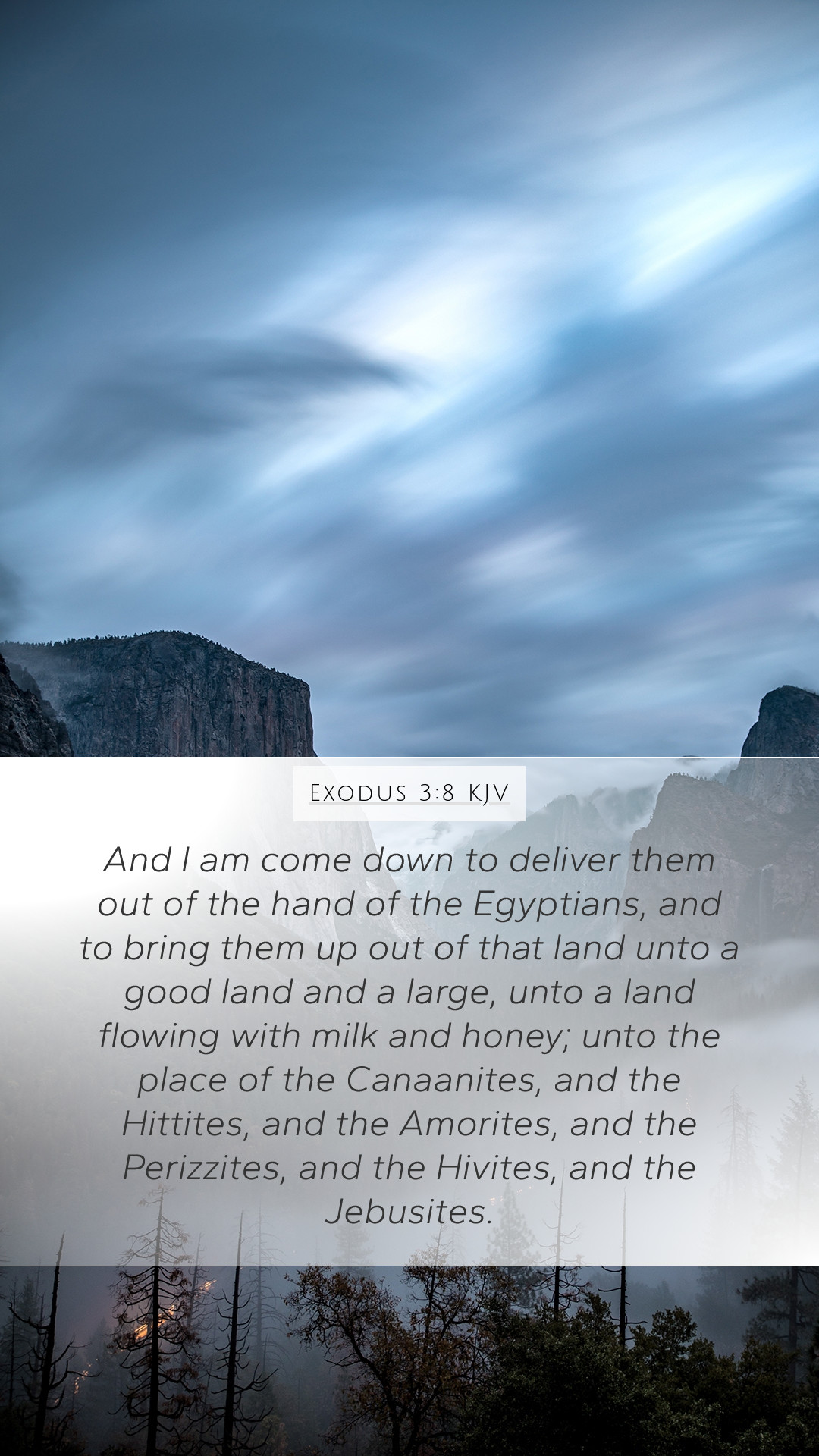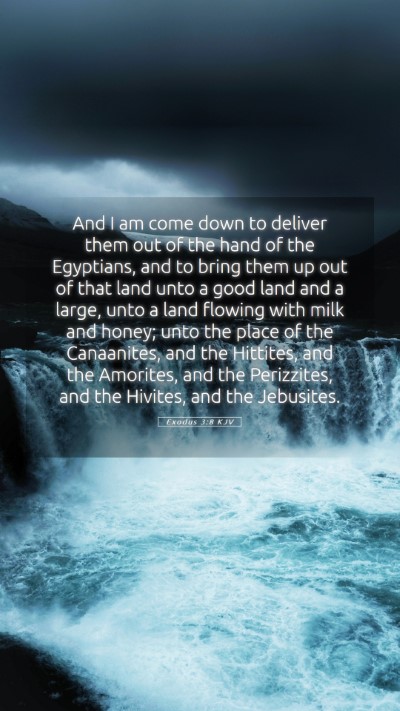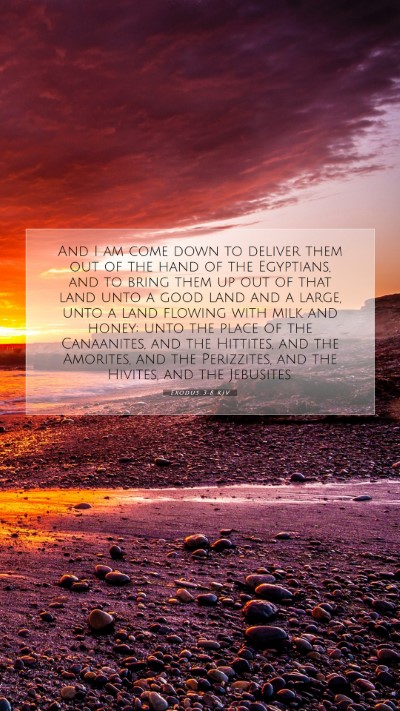Understanding Exodus 3:8
Exodus 3:8 states, "So I have come down to rescue them from the hand of the Egyptians and to bring them up out of that land into a good and spacious land, a land flowing with milk and honey—the home of the Canaanites, Hittites, Amorites, Perizzites, Hivites, and Jebusites." This verse marks a pivotal moment in the salvation narrative of the Israelites. Below, we explore its meaning through various public domain commentaries, reflecting on its theological significance and practical implications.
Bible Verse Commentary
Various ancient and modern commentators provide rich insights into the meaning and implications of Exodus 3:8:
-
Matthew Henry:
Henry emphasizes God's initiative in rescuing the Israelites. He notes the importance of divine intervention in their plight, showcasing God's character as a deliverer. The mention of a "good and spacious land" signifies not only a physical location but also an abundance of spiritual blessings and prosperity that God promises to His people.
-
Albert Barnes:
Barnes highlights the significance of God's covenant with Israel. He interprets the "land flowing with milk and honey" as a metaphor for divine favor and abundance. This descriptive phrase serves as an encouragement to the Israelites, providing them reassurance of the land's fertility and God's commitment to their welfare.
-
Adam Clarke:
Clarke analyzes the geographical and historical contexts of the inhabitants mentioned in this verse. He points out that the various tribes listed—Canaanites, Hittites, Amorites, Perizzites, Hivites, and Jebusites—represent not just adversaries but also a contrast to the promised blessings awaiting the Israelites. Clarke suggests that the deliverance mentioned here foreshadows the greater redemptive work through Christ.
Key Themes and Insights
From these commentary insights, we derive several key themes that enrich our understanding of Exodus 3:8:
-
Divine Rescue:
This verse affirms God's commitment to rescuing His people from oppression. It serves as a foundational teaching on the nature of God as a protector and savior, resonating deeply with those seeking comfort in times of trouble.
-
Covenant Promise:
The promise of a land flowing with milk and honey underscores God's faithfulness to His covenant. It reassures believers of the continuity of God's promises throughout biblical history, encouraging us to trust in His provision.
-
Historical Significance:
The context of the verse requires an understanding of the Israelites' bondage in Egypt and their longing for freedom. This history is essential in grasping the magnitude of God's deliverance and the significance of the promised land in biblical narrative.
Application of the Verse
Applying the insights of Exodus 3:8 to our lives involves recognizing God's active role in our struggles and His everlasting promises. Believers are encouraged to:
-
Seek Divine Intervention:
In times of personal or communal distress, one can find solace in praying for God’s help, much like the Israelites did.
-
Trust God’s Promises:
Reflecting on the assurance of God’s promises can help strengthen faith and resolve in difficult circumstances.
-
Recognize Spiritual Abundance:
The metaphor of a land flowing with milk and honey can inspire gratitude for the blessings God provides, even in challenging times.
Related Bible Cross References
- Genesis 12:1-3 - God's call to Abraham and His promise of land to his descendants.
- Deuteronomy 6:3 - The directive to obey God's laws for blessings in the promised land.
- Exodus 3:17 - God's further assurance of delivering the Israelites to a promised land.
- Joshua 1:2-3 - Joshua's commission to lead the Israelites into the promised land.
- Psalm 81:10 - A reminder of God's provision, tied to the abundance of the lands He promises.
Conclusion
In summary, Exodus 3:8 not only reflects God's compassion and commitment to deliver His people but also invites believers to recognize the richness of His promises. As we engage in bible study groups and explore resources on biblical exegesis, understanding contexts such as these only heightens our appreciation of Scripture and its application to daily life.


